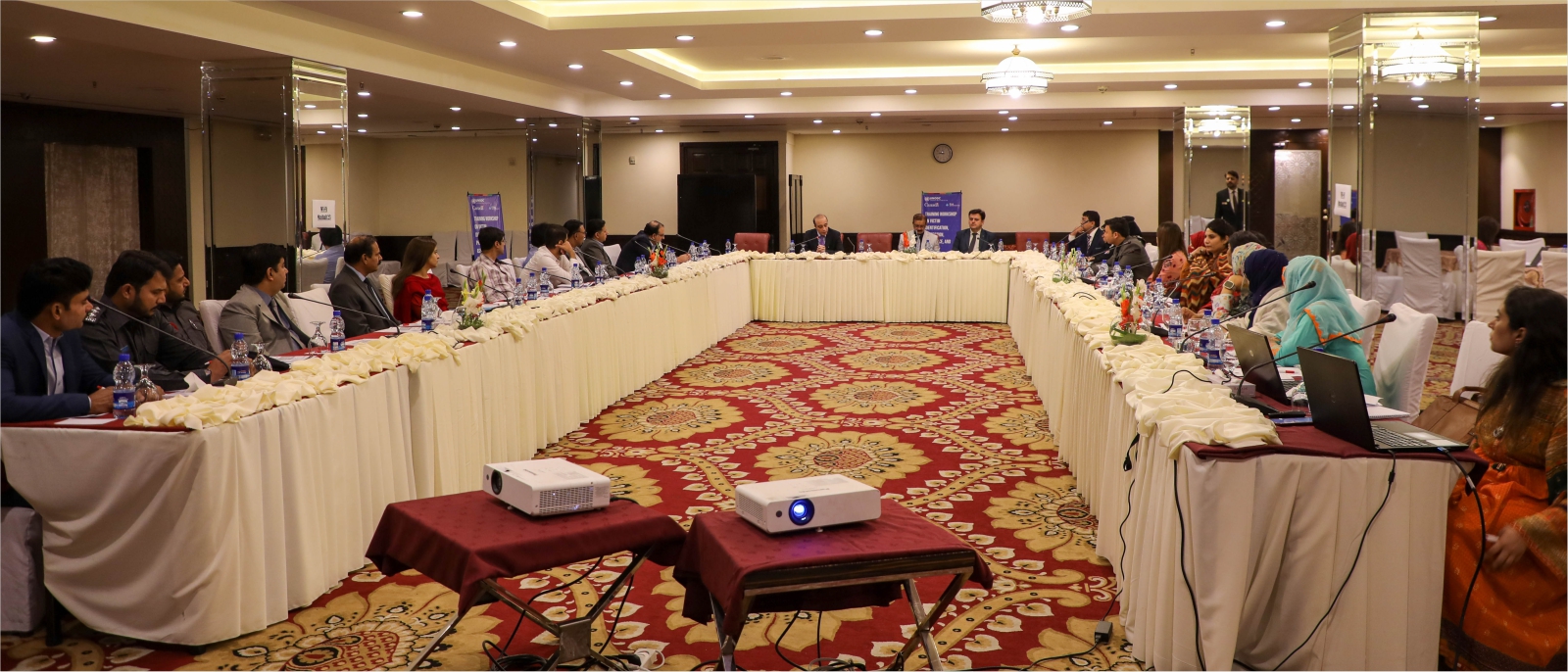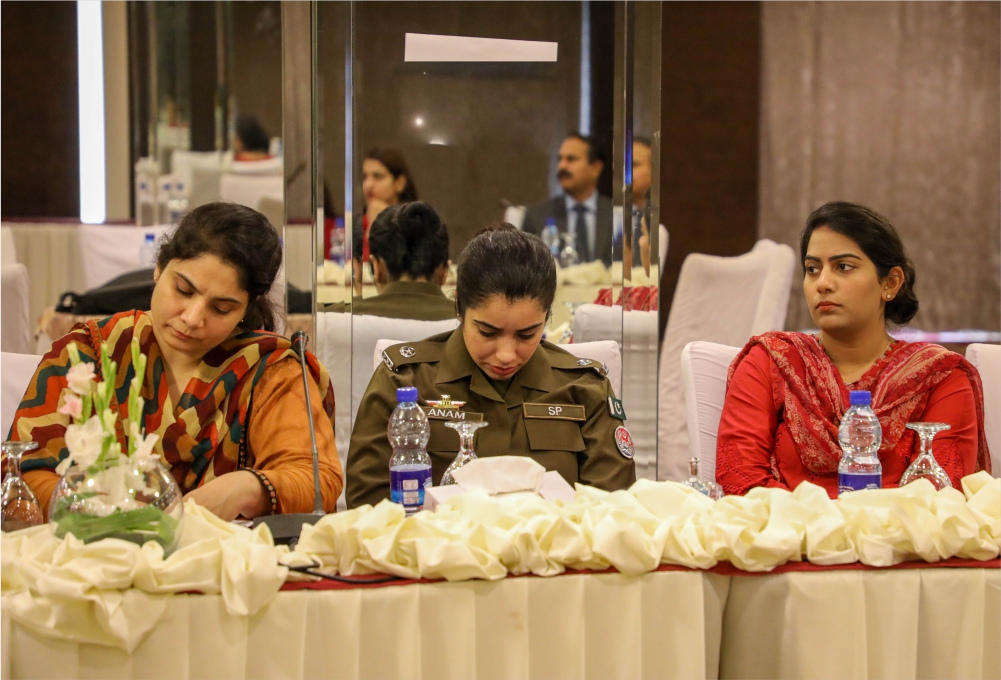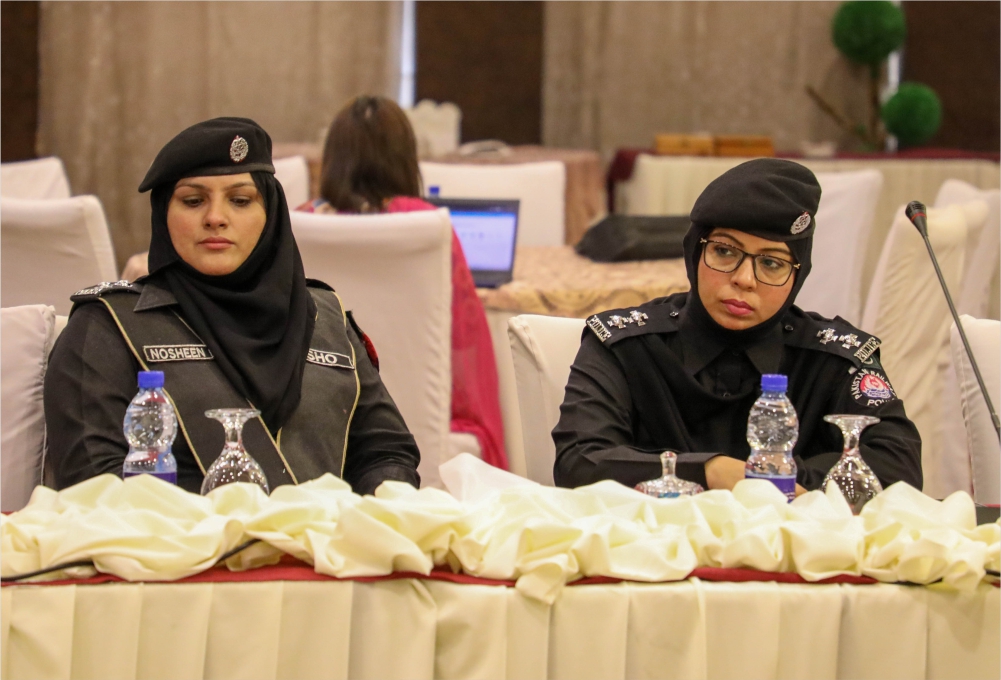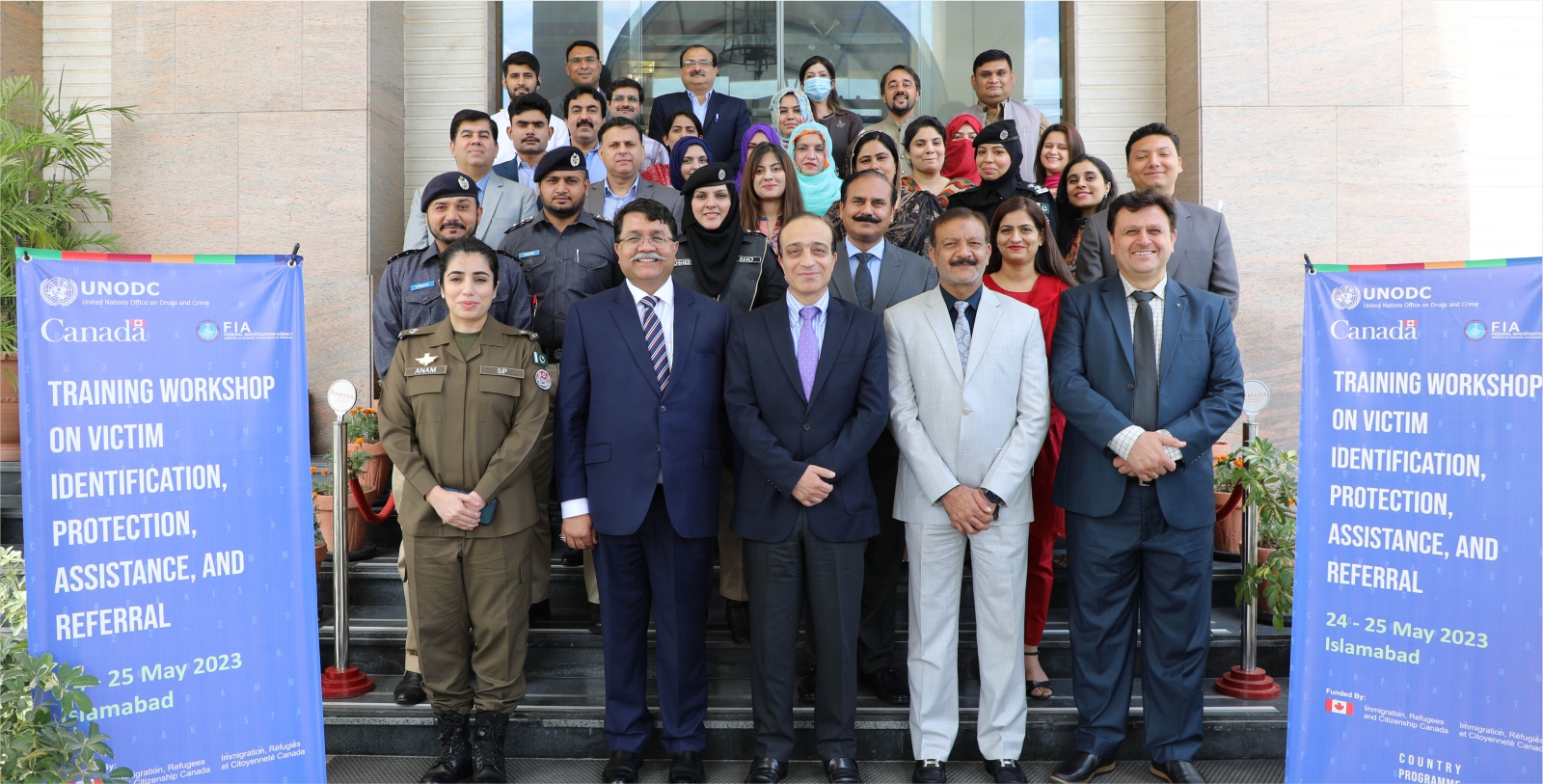
29 May 2023, Islamabad - UNODC in collaboration with FIA organized a two-day training workshop on victim identification, protection, assistance, and referral, with the financial support of Immigration, Refugees and Citizenship Canada (IRCC). The training session aimed to equip and familiarize stakeholders and representatives of law enforcement agencies and concerned departments with trafficking in persons, smuggling of migrants, and apprehensions related to these transnational organized crimes.
It also aimed to enhance the effectiveness of counter-human trafficking strategies, and the integration of assistance and support mechanisms. Integrating assistance and support mechanisms not only contributes to improved public safety but also plays an important role in providing support to victims and addressing the trauma they may have experienced as a result of the crime.
The training workshop was attended by 32 participants including 15 females, 14 males, and 3 transgenders. The trainees included representatives from the Federal Investigation Agency, the Punjab Police, the Social Welfare Department of Punjab, the Child Protection Unit of Punjab, the Tahaffuz (Protection) Center of Punjab Police, Police Training Schools, the Railway Police, and representatives of civil society organizations.


In his opening remarks, Mr. Alam Shinwari, Director, of Anti-Human Smuggling, Federal Investigation Agency (FIA) emphasized the importance of identifying and supporting the victims of these crimes to create a comfortable and favorable environment for them for proper help and guidance. He stressed the necessity of an inter-departmental approach, legal, moral, ethical, and international concerns related to human trafficking and smuggling of migrants.
In the introductory session, the Lead trainer, Dr. Basharat Hussain, discussed the concept of trafficking in persons and the smuggling of migrants in the context of Pakistan. His session further focused on the issues of consent, identifying at-risk individuals, assistance services, and referral options. The difference between the smuggling of migrants and trafficking in persons, the magnitude of this crime, and the legal framework of these transnational crimes were also discussed. The training was concluded with suggestions and prevention techniques to curb and counter trafficking in person and smuggling of migrants.
During the two-day training, participants learned about the policies, laws, and scenarios related to trafficking in persons and the smuggling of migrants. As well as the basics of protections, provisions, and laws related to trafficking in persons and smuggling of migrants. Group activities and exercises made this training more effective. Group exercises on victim identification and necessary assistance provision were conducted.
They were also informed about the role of the International Organization for Migration- UN Migration Agency in strengthening service delivery for victims in Pakistan. Additionally, the crucial role of civil society organizations in countering human trafficking in Pakistan was also explained to the participants.
